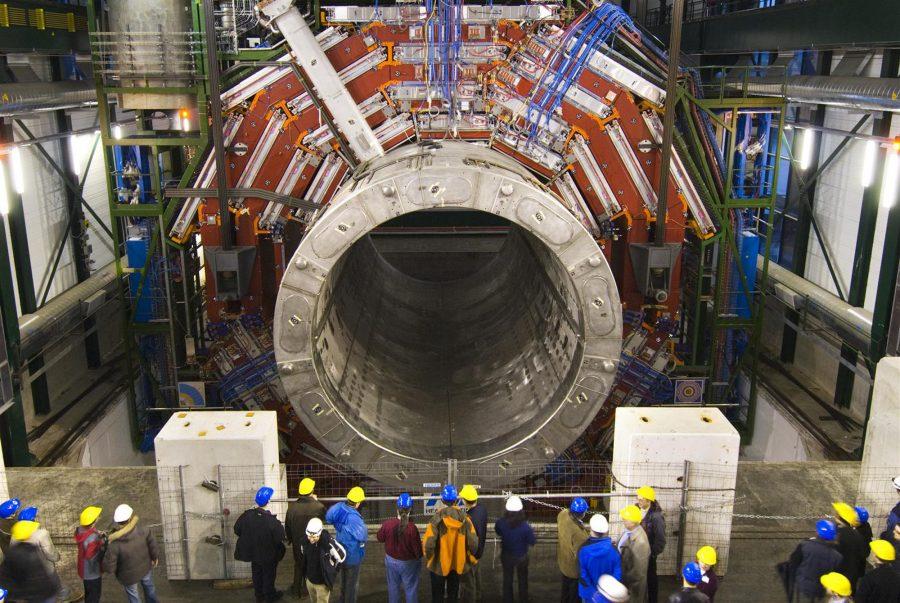
The Nobel Prize is one of the most prestigious awards that one can receive. In his 1895 will, Alfred Nobel designated most of his wealth (around US $260 million in today’s money) for prizes in the following five categories: physics, chemistry, physiology or medicine, literature and peace.
The Nobel Committee has made two major changes to the Nobel Prizes since it started in 1901. The committee added a prize in Economic Sciences in 1969, but more importantly, it limited the maximum number of people sharing a prize to three. Although Nobel did not actually state the restriction in his will, the committee has continued to follow this practice, a limitation which has caused problems for Nobel Prizes primarily in the sciences (physics, chemistry and physiology or medicine).
In the early 1900s, more individual discoveries were made but with less collaboration among researchers. Limiting credit for a discovery to three researchers was not a major problem at that time. Scientists, however, have been collaborating more and more since then. According to Michael Mabe, Director of Academic Relations at Elsevier publishing company, the number of active academic journals in the 20th century doubled every twenty years (STM). And the current “Information Age” has only made collaboration easier. The Internet and computer have allowed scientists to share ideas via online journals, magazines and other forms of communication. The National Science Foundation (NSF) reported in 2008 that the number of journals and articles per journal increased by 17% and 19%, respectively, from 1988 to 2005. More importantly, the average number of co-authors per article increased from 3.33 in 1988 to 4.81 in 2003. The International Association of Scientific, Technical and Medical Publishers (STM) attributed the increase in research productivity to improvements in information technology and to what they termed the ‘globalization of science.’
Because international collaboration in scientific research is increasing, limiting the number of laureates to three per prize marginalizes the efforts of many researchers. This year’s Nobel Prizes in Physics and Physiology were especially affected by this limitation. Although Peter Higgs and François Englert, the two winners of this year’s Nobel Prize in Physics, are credited with the discovery of the Higgs particle, they were not the ones who confirmed its existence in the lab. Scientists from the European Organization for Nuclear Research (CERN) analyzed data from the Large Hadron Collider and determined the existence of the Higgs particle last year.
In fact, Higgs and Englert were not even the only researchers to predict the existence of the Higgs particle in the 1960’s. According to an article in The Economist, a different team submitted a more comprehensive article on the Higgs particle a few months after Higgs’s and Englert’s teams had. It would seem fair for the Nobel Committee to award the prize to all three teams and to CERN for discovering the Higgs particle, but the committee did not do so.
This year’s prize in Physiology for determining vesicular transport had more than three major contributors, but only three of them became Nobel laureates. According to Mr. David Knight (Sci. Dept.), it is not uncommon for the committee to allocate prizes in biology and chemistry to only the most important contributors. He said, “Most of the research nowadays has many contributors, so a Nobel Prize is awarded to one laureate only if the research is very unique and is done individually. Even with increases in collaboration, no more than three people should share a Nobel Prize because the significance of the prize will decrease if too many people share it.”
Although the committee should limit the number of laureates sharing a prize, giving proper credit to all major collaborators is more important. Because the number of coauthors in an article, on average, is 4.81, extending the limit to five people will cover all coauthors and potentially allow other deserving organizations, such as CERN, to share the prize. Allowing more collaborators to share a Nobel Prize may dilute the award’s magnitude, but fewer researchers will need to bicker over credit given for each discovery. Because modern scientific research is a collaborative effort among many scientists around the world, giving more Nobel Prizes will promote cooperation in the scientific community.
Written by ANDREW HONG
Staff Writer
Categories:
Keep the Nobel Prize noble
November 18, 2013
0
Donate to Sword & Shield
$180
$1000
Contributed
Our Goal
Your donation will support the student journalists of University High School. Your contribution will allow us to purchase equipment and cover our annual website hosting costs.









